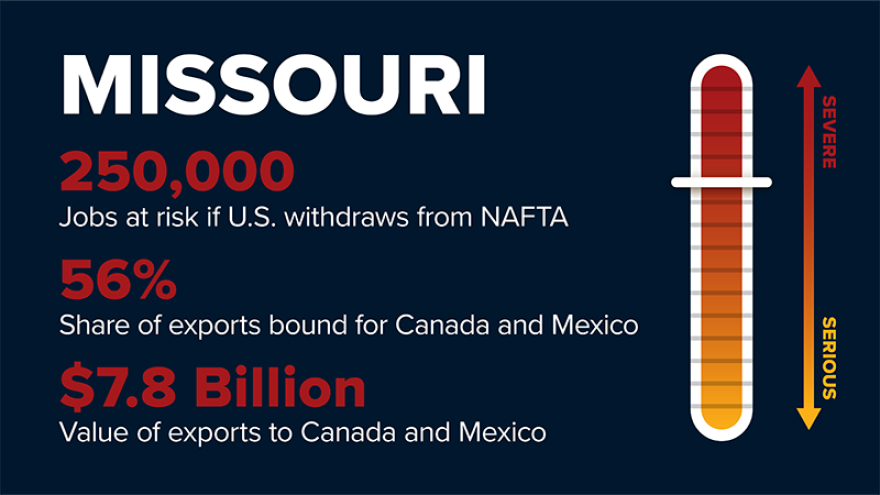Trade experts are poring through documents related to this week's agreement between the U.S. and Mexico, but a professor at Washington University in St. Louis cautions more information is needed before a full assessment can be made. Even so, he said there are some positive signs emerging from the deal.
John Horn is a professor of practice in economics. He says after months of talking about revising international trade deals, it's good that something is on paper.
"It's a movement on trade," he said, while cautioning, "but we just don't know ultimately whether it's going to be good or bad until we see all the details and all the political ramifications."
He added it doesn't seem like negotiators are close to a final deal that will completely replace the North American Free Trade Agreement.
Opponents of NAFTA have pointed to job losses since that deal was put in place roughly 25 years ago. They claim American manufacturers moved jobs to Mexico because of lower wages. Horn said it’s difficult to know how that perception might change after this week's agreement.
There are scenarios where more highly skilled positions could shift to Mexico and models suggesting manufacturing jobs could come back to the U.S.
NAFTA is a three-country agreement, and talks to bring Canada into this new deal are taking place. But that nation could easily be left out, according to Horn. He said President Trump has indicated he prefers bilateral — or two-country — agreements. That leaves several options, including Canada, negotiating separate deals with Mexico and the U.S., or entering the deal announced this week in what would amount to a re-worked NAFTA.
"It's more of a political decision of, 'Which route do we want to go down?" said Horn. "Multi-country or bilateral?"
The three countries are closely linked in all aspects of trade — from cars and trucks to fruits and nuts.
For instance, the U.S. Department of Commerce reports the country imports $24 billion worth of agricultural items from Mexico. The author of the book "Eating NAFTA: Trade, Food Policies, and the Destruction of Mexico" recently told our partners at Harvest Public Media that the agreement could be considered a bad deal for food systems in both countries.
"It basically liberates us in the United States from growing what are called specialty crops," said Alyshia Galvez, who is a professor of Latin American and Latino Students at Lehman College of the City University of New York.
"But then, in exchange, we give Mexico kind of the worst of our food system, ingredients that go into industrialized food processing that have been associated with diet-related illness."
(Click here to read and listen to an edited version of that conversation with Harvest Public Media's Erica Hunzinger.)

There is a lot at stake in the North American trade puzzle for Missouri. And it extends well beyond agriculture. Canada and Mexico are the state's largest international trading partners.
A U.S. Chamber of Commerce report valued those exports at nearly $8 billion. It also estimated roughly 250,000 Missouri jobs could be at risk if NAFTA collapses.
Follow Wayne Pratt on Twitter: @WayneRadio




